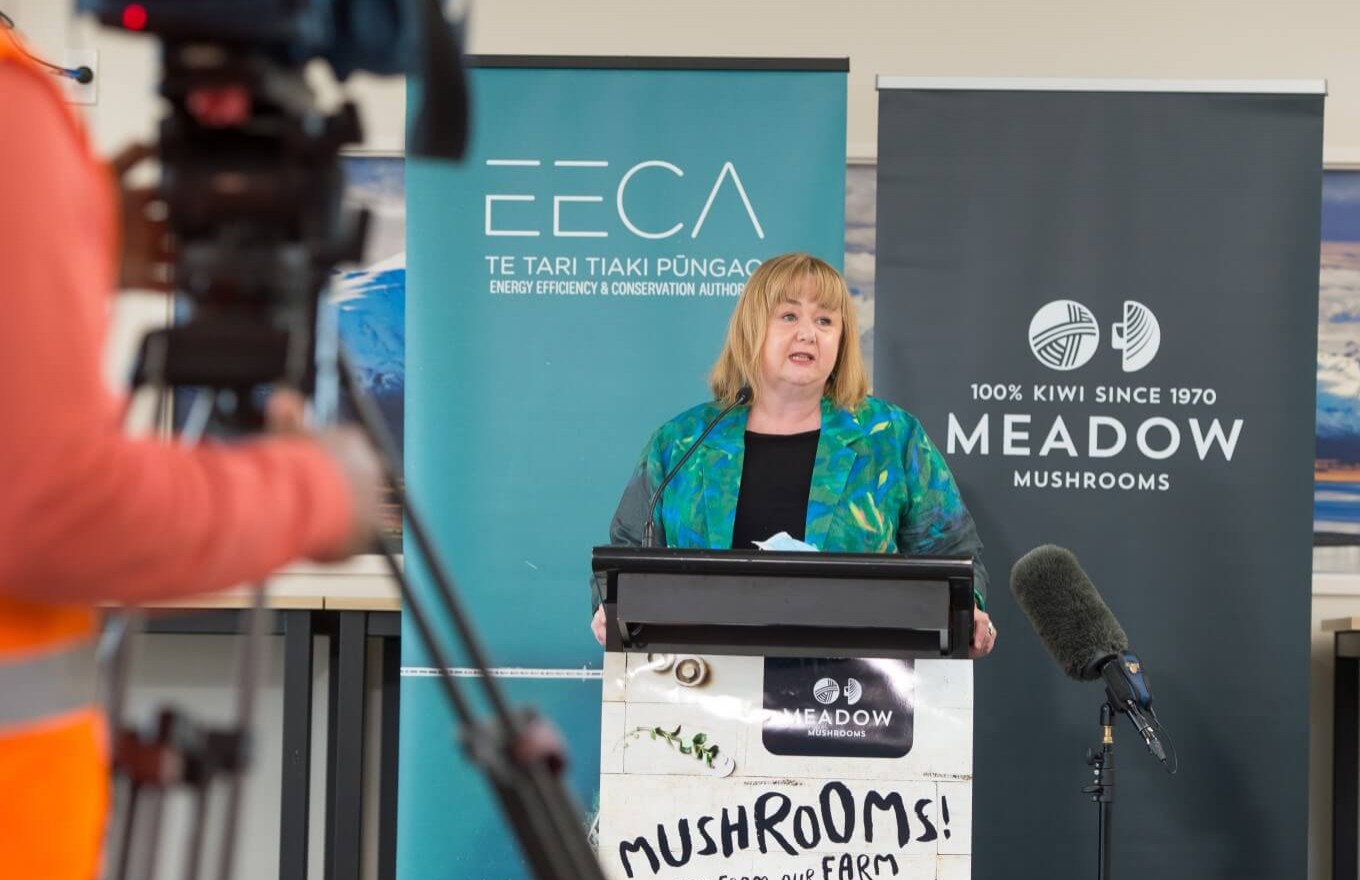Press Release: Another Sustainable Move By Meadow Mushrooms
30 September 2021

Meadow Mushrooms is set to make a big leap forward in its goal to reduce its carbon footprint and become a Net Zero carbon business with the announcement today of co-funding from the government.
With financial support from the Government Investment in Decarbonising Industry Fund (GIDI), Meadow Mushrooms will replace their current diesel fired boiler with a low carbon electric option. The move to an electric boiler will significantly reduce greenhouse gas emissions at the company’s main mushroom growing and packing site in Hornby, Christchurch.
The company is the largest producer of fresh mushrooms in New Zealand with five sites and a team of nearly 500 people. They deliver over 9 million mushrooms a week to wholesalers, distributors and retailers across the county and lead the industry.
Meadow Mushrooms CEO, Todd Grave says the company is delighted to be named as a successful recipient of the GIDI fund. “Replacing diesel as a fuel source is critical to achieving our goal of decarbonisation. We recognised that moving to a cleaner energy source made good business sense. With this co-funding from EECA and the assistance of Meridian Energy and Orion Energy we will fast track our move to using electricity and continue to reduce the impact of our process on the environment.”
Grave says the job of the boiler is to produce live steam for Meadow’s mushroom growing site. The steam cleans and sanitises our mushroom growing facilities to help control mushroom diseases without excessive use of pesticides and chemical sanitisers - a process which is commonplace in the mushroom industry. He estimates a reduction in carbon emissions of 39,000 tCO2 over a 25-year lifespan for the new boiler, a very significant carbon abatement. This represents a 65% reduction in Meadow Mushrooms fossil fuel usage.
In announcing the successful GIDI application, Andrew Caseley, EECA CEO, said, “We’re really pleased to support Meadow Mushrooms’ project. GIDI fund recipients need to show they’re already committed to a carbon reduction pathway, and Meadow Mushrooms' work to switch to a low carbon boiler to reduce their greenhouse gas emissions through clever energy management has set them up for success in this project. This shows what’s possible for the horticultural sector.”
Electric boiler technology is well established, but with this project, Todd Grave says it is the type and size of the boiler that is new for New Zealand and that demonstrates how this technology can be applied for medium to large scale steam requirements.
For the Meadow Mushrooms business, the move to a low carbon option is just one initiative in a wider plan for improved sustainability. The company has moved to using more electric forklifts on site, replacing petrol tractors with electric trucks, improving the efficiency of their chilled water plant and improving insulation. They have also changed their growing room lights to LEDs that have been designed by Meadow Mushroom’s engineers and are considered a world first for mushroom growing.
Together with a few other projects, the company estimates it has abated or eliminated 320 tonnes of CO2 emissions in the last two years.
But Todd Grave says there is much more to do. He says the business will focus on a carbon reduction strategy with greater energy efficiency, transitioning away from fossil fuels in the boilers and mobile plant, replacing refrigerants with low GWP options and a reduction in Scope 3 emissions through procurement processes.
“Mushrooms are one of the most sustainably grown foods on the planet. They’re ready to pick in days, require minimal natural resources to grow and, thanks to their growing method they achieve one of the best yields per square metre of land in the agricultural industry.
At Meadow Mushrooms, the environment is an integral part of our business, which is why our commitment to sustainability guides our decision making every step of the way - from composting, growing and packaging and everything in between. We are always looking for better ways to grow, recycle, reuse and regenerate. This latest move to low carbon electricity in our production is another step forward in looking after the environment.”